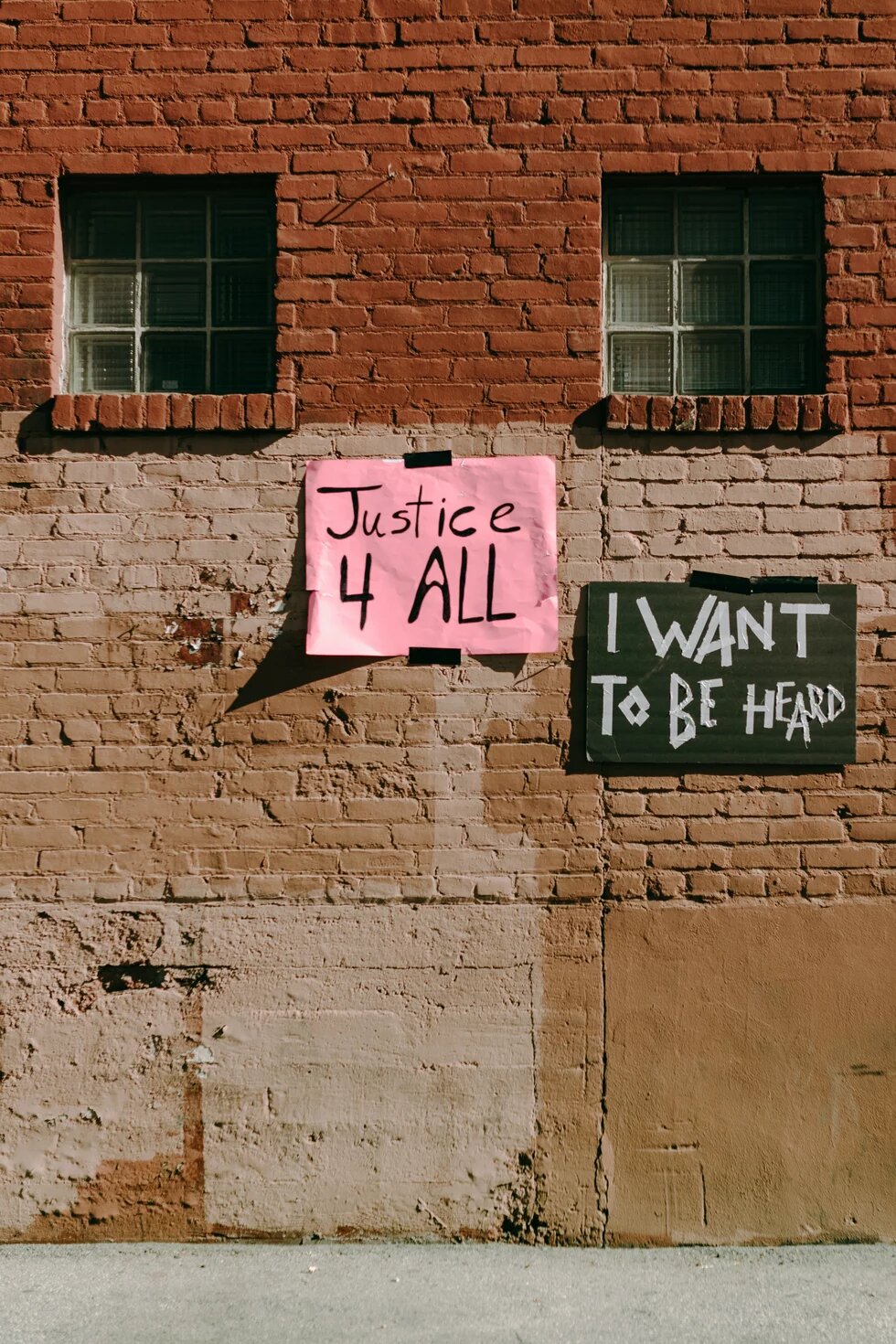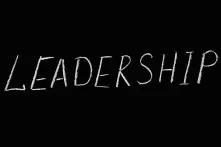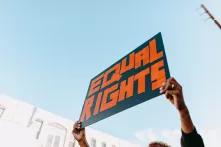In the non-profit sector, we’re great at talking about structural inequalities. Systemic disadvantages and social divisions? We’ve got that covered. You need a 50-minute speech about social exclusion and its impact across geographical regions? Sure, pass me the mic. Yet despite our fluency in structural analyses of power, we remain woefully inarticulate about a very specific form of power: privilege.

I’m referring here to the types of rights, advantages and protections we automatically receive by virtue of our membership of a dominant group (e.g. male, white, cisgendered, non-disabled). Our inability to turn the lens of analysis inwards to ourselves and our organisations means we are unable to interrogate the role we play in perpetuating inequalities. Whenever we focus solely on discrimination, social exclusion and social inequalities, we reinforce the invisibility of privilege and are blind to the role it plays in perpetuating injustice.
Of course, to a certain extent, our short-sightedness when it comes to our own privilege is understandable. We are more likely to be aware of how we’re oppressed than how we’re privileged, as our experiences of marginalisation often play such a key role in forming our own identities. But our failure to focus upon privilege, and how we may be upholding inequalities in our workplaces, is having a devastating effect. Our sector has… issues. Let’s look at the UK, where most charities are overwhelmingly white; where certain parts of the sector — I’m looking at you, international development — are incredibly elite; and where our workplaces are not entirely welcoming places for LGBTQ employees.
For many non-profit organisations, privilege is still the 500 kg gorilla in the room. It’s something we don’t speak about; we get defensive about; we have misconceptions about; or we are emotionally fragile about. While I have seen a handful of NGOs actively exploring concepts relating to privilege, there’s a problem. It’s almost as if speaking about it has become a substitute for actually doing anything to dismantle it. To those employees who are further away from positions of power, these discussions start to feel performative — they become an enactment of a desire to self-interrogate, rather than the start of a genuine process of change.
How your privilege impacts your ability to lead
Feminist leadership stresses the importance of really knowing our own relationship to power — and in particular stresses that we must understand how we are complicit in sustaining inequitable systems of power. If you haven’t done deep work to analyse and take action to address your own privilege, it’s likely to affect your leadership practice in the following ways.
- You will have ‘blind spots’: a lack of awareness of how your behaviour or the organisational culture and systems you work in produce and reproduce inequalities for some and invisible benefits for others. Privilege functions to perpetuate myopia: of course most of us don’t want to see our privilege in stark technicolour — if we do, we will have to question a system that is benefiting us.
- You may treat everyone on your team more or less the same — because you assume that they’re all starting from the same point and experience the workplace in similar ways. In fact, gender, class, sexuality and ethnicity and our other identity categories can profoundly shape the way we move through our workplaces.
- You may confuse the signs of privilege with the signs of capacity — which makes you unable to spot latent talent or to parse potential from privilege in a prospective or current employee.
- You might notice some inequitable practices in your workplace, but do not prioritise addressing them — perhaps you say they can be addressed later down the line. Once upon a time, I asked for diversity to be included as a target in a leadership initiative in a non-profit organisation. ‘Let’s deal with women first, we can get to diversity later on,’ said my white, able-bodied female manager. For minoritized groups, ‘later’ is usually an oppressive time zone.
- You fail to interrupt bias when you see it taking place and don’t see that your legitimised identities mean there are fewer risks to you taking action to address bias than a marginalised group. Or perhaps you feel that your contribution to ending bias is comforting an injured party, without actively challenging the person or system that caused the harm.
- You don’t go out of your way to seek feedback from marginalised or underrepresented groups in your organisation — or even worse, when you do, the process of feedback becomes your focus, rather than ensuring that the feedback spurs meaningful change.
- You feel uncomfortable speaking about certain topics and so take every means to avoid conversations about them. I recently heard that the outcome of a race discrimination investigation at a medium-sized NGO was the recommendation that employees should not speak about race when at work. Yes, this actually happened in 2020.
- You may focus upon the intentions of your actions rather than their impact — meaning you don’t fully own up to the harm you may be causing others.
Organisational culture is produced and reproduced by individuals. These behaviours, repeated over time, help to embed privilege in our organsiations in ways that can be difficult to name or identify. Without any conscious decision by leaders to proactively promote them, they become normative and expected; baked into the deep cultures in our workplaces. So how do we start to dismantle this?
Avoid shame and complacency traps
A common feature I see, particularly among younger women working in non-profits, is a sense of feeling profoundly guilty about the privilege they have, to the extent that they ‘sit statically’ within the shame of it. Guilt and shame can be paralysing — which leads to you unintentionally collude with the system that props up privilege in the first place. Another dynamic I see is that people feel snugly cocooned within their assumption that, having dedicated their lives to the pursuit of social justice, they cannot possibly be causing any harm. Finally, there is a somewhat disingenuous trend among certain groups working in the non-profit sector that by merely acknowledging their privilege they have dealt with it.
James Baldwin can offer us a way through this — by reminding us that we have to make a clear, unvarnished assessment of our own privileges: ‘Not everything that is faced can be changed, but nothing can be changed until it is faced.’
Action stations
To chip away at privilege in our workplaces requires new practices and behaviours — and it starts at the personal level. There’s a considerable body of evidence showing us that individual change is an important precursor to organisational change — after all, our organisations are made up of individuals — which should give us hope that change is within our grasp. There are many exercises out there that can help you do this. (Check out the power flower from Just Associates or the Wheel of Privilege tool.) Push yourself to get uncomfortable — don’t expect to fix the roof while the sun is shining; this is difficult work and if it doesn’t feel hard, you aren’t doing it right.
You can do this while also laying the foundations for future collective action. For example, creating space for reflection alongside your peers and teams can help to bring a sense of mutual accountability for this work, too, and initiate processes of collective change. Others have written more eloquently than me about how you can leverage your privilege by practising meaningful allyship or by interrupting bias. Instead, I want to share some common behaviours leaders should AVOID if we are to root out privilege from our workplaces. These include:
- ‘Wilful Ignorance’ — marginalised groups often struggle to get people in dominant groups to believe their experiences, especially those who do not have lived experience of an issue. When someone points out a pattern of workplace inequality, it’s really problematic when our first response is not simply to listen, believe and empathise, but to say that more data must be collected. When this happens, it’s likely ‘wilful ignorance’ is partly at play, meaning dominant groups are invested in not seeing something as an issue, because it means doing something to change a system that actually benefits them.
- Giving exceptions to the rule. When confronted with a case of how privilege excludes some to the benefit of others, it’s common to hear people challenge through giving an ‘exception’. E.g. ‘we can’t have a problem with disability in this organisation, we have someone with a disability on the senior management team’. Unpack what is really being said here: namely, that an exception negates wider patterns of discrimination. I’m betting we wouldn’t apply such a simplistic analysis to other areas of our work.
- Channel-switching — refers to when someone raises an issue about an area of workplace inequality, only to have it met with an assertion that another form of oppression is more prevalent. In the international development sector in the UK, for example, when people of colour push for more action on racial diversity, we’re often told, ‘Ah but the true oppression in this sector is class’. This is simplistic thinking at best — we know that inequalities intersect and that siloed approaches do not make sense — and acting in bad faith at worst.
- Defensiveness only ever holds an unequal status quo in place. When we get defensive after someone calls out our mistaken assumptions or behaviour, we don’t listen, and we miss a golden opportunity for learning and change. When we feel judged, our first response instead should be: ‘What do I not yet understand?’ We all make mistakes and jump to conclusions— feminist leadership is about what we do when we our assumptions are challenged.
A caution: I cannot give you a set of skills on privilege and feminist leadership that can be straightforwardly delivered and reproduced. Please don’t let that put you off. The challenge is that our sector is often obsessed with technical quick fixes rather than deeper, transformative work. How many times have you been in a meeting when someone is demanding to know what are the ‘low-hanging fruit’ or ‘quick wins’? Or when someone dismisses a bold, transformative plan for change in favour of simply ‘meeting people where they are at, and going from there’? Working on privilege is an ongoing, redistributive and ultimately rewarding project for the purpose of social transformation of our workplaces and beyond. It is deep work — you owe it to yourselves and the causes you care so deeply about to make a start.
This article has already been published.

